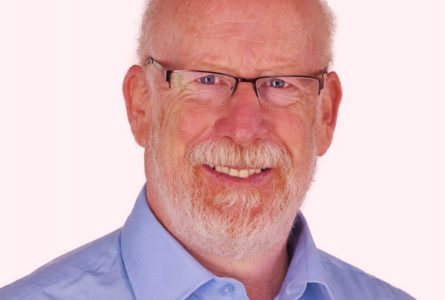Lack of green election issues 'mystifying' to best selling author and scientist
By Michael Jessen
A best-selling Australian author and scientist is baffled to see Canada’s election campaign sidestepping climate change and environmental issues.
Tim Flannery, recently appointed as chief commissioner of the Australian government’s climate commission, says the environment is one of the top issues everywhere he travels.
But after arriving in North America to promote his new book, Here on Earth, he noted from the recent federal leaders debates that Canada’s political climate was different than what he saw during a visit three years ago.
“I watched with great interest but I was mystified to see the environment just didn’t rank at all,” said Flannery.
Asked by the Georgia Straight to comment on the record of the Stephen Harper government in addressing climate change, Flannery had trouble restraining his comments.
“Canada would have to be one of the worst performers globally in this area,” he stated, adding that this provides excuses for poorer nations not to deal with the problem.
“It also corrodes morale and ultimately will lead to censure from the world. It’s a profound moral problem. We all have to do our bit in this, you know. It really is sad, actually, to see Canada now becoming quite isolated and potentially quite damaged, I think, by the path it has set.”
He pointed out that Canada hasn’t come close to achieving its target in the Kyoto Protocol. At the 1998 signing of the protocol, Canada agreed to reduce greenhouse-gas emissions by 2012 to six per cent below the 1990 level.
However by 2008, Canada’s emissions had increased by 24 per cent, according to Environment Canada.
“Now, you have set another set of targets nationally for yourself, which is a 17 per cent reduction below 2005 levels by 2020,” Flannery noted, referring to Canada’s post-Kyoto Protocol goals for greenhouse-gas emissions.
“You’ve got eight years and eight months to achieve those targets. And yet I see no earnest efforts by the federal government. You don’t have the programs in place to honour it.”
As a result, he said, either Canada will become an international “laughing stock” or trust in this country will vanish.
“For governments,” he added, “their word is their bond. Trust is the only commodity they trade in — both with the voter and with other governments around the world. If you don’t have trust, if your word is not your bond, then you become a laughing stock or an untrustworthy partner.
“And that is immensely damaging for countries. It is sort of really sad for me, from the outside, to see that pattern emerge. I just don’t think any country can afford to do that.”
Conservative leader Stephen Harper promised in the 2008 election campaign to introduce a carbon-trading scheme that never materialized. The Liberals and New Democrats are now promising to introduce the same type of system.
“I would say there’s no escaping these issues, because year on year, decade on decade, it’s only going to keep growing, while the emissions keep growing,” said Flannery.
He suggested the example of Australia is most relevant to Canada, because the two countries are rich in fossil fuels and have similar economies. Unlike Canada, the Australian government has mandated a target of 20 per cent renewable energy by 2020, he said, noting that this is supported by right- and left-wing parties.
In addition, there is bipartisan support for a five per cent reduction in greenhouse gases by 2020—with regulations in place to honour this commitment.
Flannery, also the author of bestselling novel The Weather Makers, said that a global shift is already under way toward electric vehicles and renewable energy.
“Canada’s prosperity is going to be dependent, in part, of taking advantage of that shift,” he said.
There are key differences in the electoral systems of Canada and Australia.
“We have compulsory voting,” he stated. “We have a larger voter turnout. The second is we have proportional representation, which again, I think, has an impact on people valuing their vote.”
In Canada, the prime minister appoints senators. Australia, on the other hand, elects its senators. Flannery described Australia’s approach of electing senators and allowing proportional representation as “increasingly standard things that strengthen democracy.” He noted that the United Kingdom is in the process of making the House of Lords more democratic, and is considering proportional representation.
“Sure, Canada is a democracy,” Flannery acknowledged. “It’s a wonderful and robust democracy—but it could be improved.”
— With files from The Province and the Georgia Straight.

























Comments